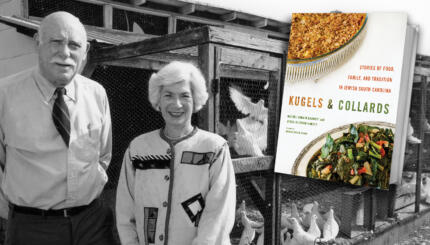I love working with people; that’s what led me to work as a camp counselor, a barista and line chef, and currently a Community Engagement Fellow at the Goldring/Woldenberg Institute of Southern Jewish Life (ISJL) in Jackson, Mississippi.
But sometimes being around people all day is emotionally exhausting.
Through my interest in psychology in the workplace, I found that this issue is called “emotional labor in the work field.” In this context, emotional labor means regulating one’s emotions for a wage. It’s the idea of putting on a happy face even when you are struggling with a customer, a partner, or a consumer. I recently met with a psychology professor who studies emotional labor, and I learned of two ways to address emotional labor: surface acting and deep acting.
Surface acting is the idea of putting on a smiling face even though you want to scream or run out. Basically, faking it ‘til you make it.
Deep acting, which has been proven to help with burnout and mental health, is the idea of confronting the emotions, taking a break, breathing deeply and asking yourself why you need to smile, and how you can better understand the people you are interacting with. It’s taking that smile off and figuring out why it feels so hard to put it back on. It seems simple, yet that reframing rewires your brain to focus on grounding questions rather than the negativities that eclipse the mind.
Asking “why” brings me back to Judaism. We love asking why: Why is this night different from all other nights? Why do we really keep kosher? Why did this happen in history? Asking why helps to root oneself in the moment, gather new perspectives, and understand the context.
As Jews, we like to chat, celebrate, study, and eat together. As a Jew in Jackson, Mississippi, I love the kindness and friendliness of the southern culture. However, I also struggle with the expectations of chatting with my neighbors, strangers, and even friends after a day of putting on a smile. I’ve found some help built-in to Judaism!
Judaism utilizes deep acting through prayer and ritual. There is a mix of sorrow and joy, reflection and camaraderie, and an allowance to take that smile off and address what is really going on. We practice this intersection of emotions by reciting the Mourner’s Kaddish and addressing the inequality and issues in the world while also singing songs of peace and gratitude. There are also times when surface acting does not even cut it. According to the book of Isaiah, on Yom Kippur God even says that it’s not the fasting that matters, but the meaning you find when journeying deeply within and actively repenting and seeking forgiveness. Fasting is just one method in which we can sit with those intense thoughts and emotions.
Deep acting or asking why helps me to place myself in the moment and take a second for myself. I notice my emotional energy lasting longer and the emotional labor not feeling as heavy. I find connections that build me up rather than deplete me; the smile is not fake but an avenue in to connection. By diving below the surface, I have the power to connect further with others around me as well as deeply within myself – which especially at this very festive and social time of year is bound to come in handy.



